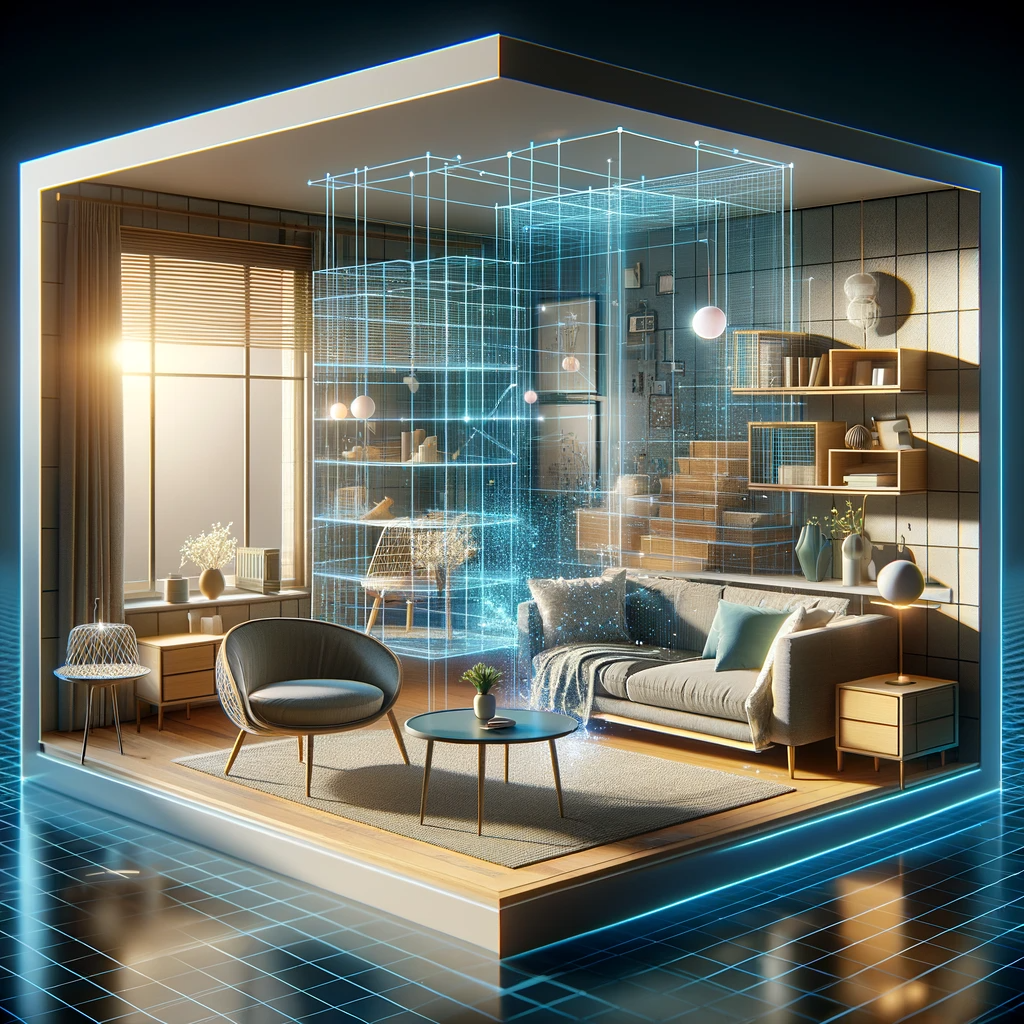Sept. 26, 2023
tags : categories: Marketing , Real Estate
Virtual home staging is a relatively new concept that has gained immense popularity in recent years. The technology allows potential buyers to envision a fully furnished space without actually having to physically stage it. Virtual home staging comes with many benefits that traditional home staging lacks, such as cost-effectiveness, scalability, and efficiency. However, with the introduction of Artificial Intelligence (AI) technologies, virtual home staging is poised to become even more impactful and revolutionize the industry.
The potential of AI to enhance virtual home staging is vast. In this article, we will explore some ways that AI can elevate virtual staging to unprecedented levels.
Realistic Renderings and Immersive Experiences
One of the primary benefits of virtual home staging is that it allows buyers to envision a space fully furnished and decorated, even if it is currently empty. However, the visual renderings used in virtual staging can sometimes look artificial and unconvincing. This is where AI technology comes into play.
AI algorithms can generate high-resolution, photorealistic images that capture the nuances of lighting, texture, and space, providing an immersive experience that closely mimics reality. Some platforms even use augmented reality (AR) to allow prospective buyers to virtually "walk through" a staged property using their smartphones or VR headsets.
Personalization Based on User Behaviour and Preferences
AI can analyze user behaviour and preferences to offer personalized staging solutions. For example, if a user has been searching for "minimalist home design" or "Art déco interiors," the AI could stage the property in line with those specific styles. This targeted approach resonates more with potential buyers and significantly enhances user engagement.

Dynamic Changes in Real-Time
AI-powered virtual staging platforms can allow users to make dynamic real-time changes to the staging elements. Want to see how the living room looks with a different sofa or a new wall colour? AI algorithms can instantly update the staging based on user inputs, offering potential buyers a more interactive and satisfying experience.
Automated Object Recognition and Placement
AI algorithms can automatically recognize a room's dimensions and architectural elements, such as windows, doors, and fireplaces. These algorithms can then optimally place furniture and decor items to maximize the aesthetic and functional aspects of the space. This automation speeds up the staging process and also eliminates human error.
Cost-Effectiveness and Scalability
Traditional home staging can be expensive and time-consuming. AI-powered virtual staging eliminates these issues, offering a cost-effective and scalable solution. Real estate agents can stage multiple properties in various styles without worrying about the overhead costs of physical staging.
Streamlined Collaboration and Feedback
AI-powered platforms often have built-in collaboration tools that allow real estate agents, designers, and potential buyers to collaborate seamlessly. Users can leave comments, make suggestions, and even vote on different staging options. This collaborative approach can significantly expedite the decision-making process and increase customer satisfaction.
Analytical Insights for Optimized Staging
Advanced AI platforms can provide detailed analytics on user interaction with the staged environment. These insights can include metrics such as the time spent exploring each room, the most interacted-with elements, and the styles that generate the most engagement. These analytics can help real estate agents and designers optimize their staging strategies for maximum impact.

Closing Thoughts
AI is setting the stage for a transformative experience in virtual home staging. With its capabilities to offer high-quality renderings, personalization, real-time interactivity, and analytical insights, AI can dramatically enhance the effectiveness of virtual staging as a marketing tool in real estate. As technology advances, we can expect even more groundbreaking features that will make virtual home staging an integral and irreplaceable part of the modern real estate landscape.
Overall, virtual home staging powered by AI technologies is a game-changer for the real estate industry. It offers a cost-effective, scalable, and personalized solution that enhances the buyer's experience and increases the chances of a successful sale. With the increasing adoption of AI in various industries, it's clear that virtual home staging is here to stay and has a bright future ahead.










